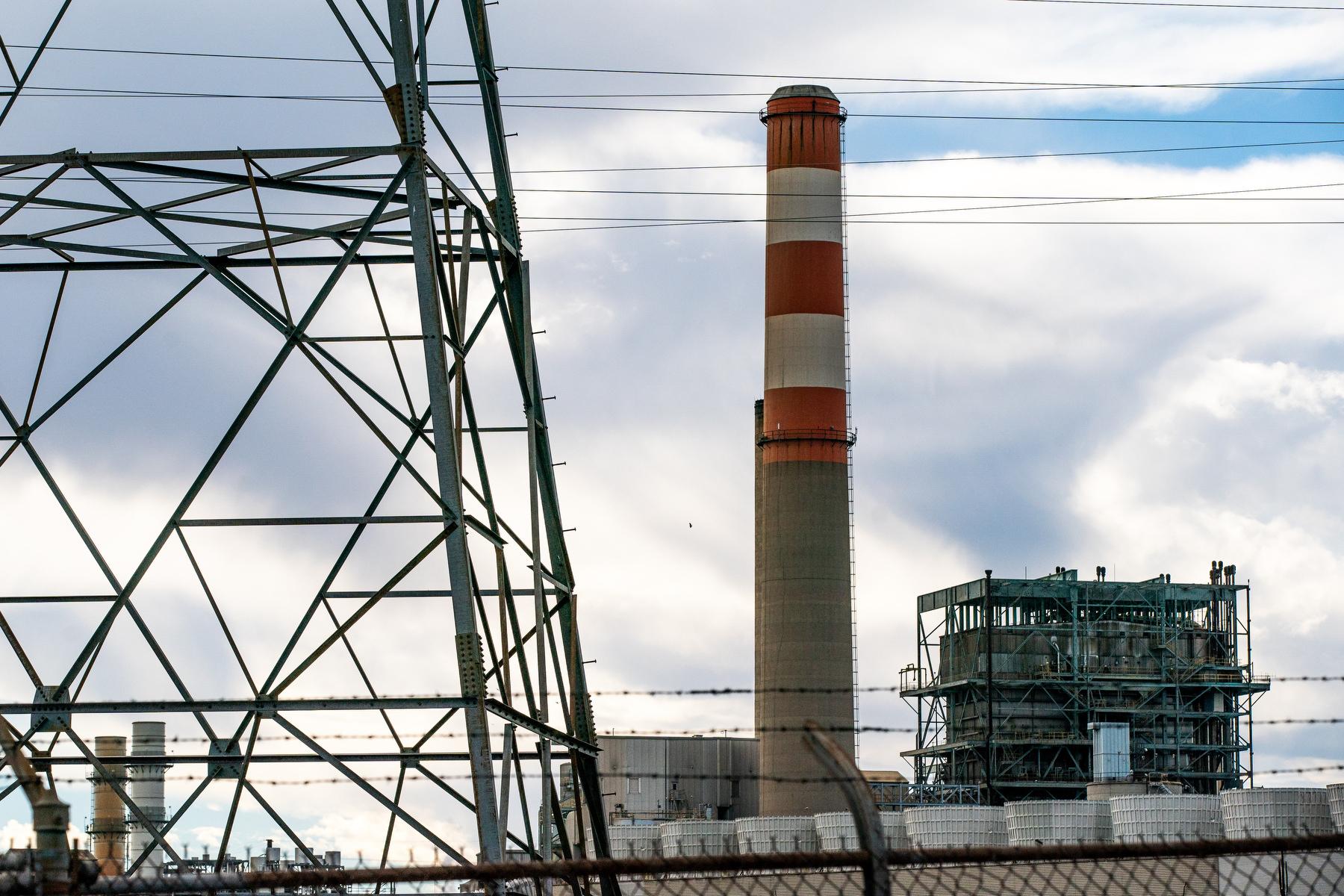
Xcel Energy and other Colorado utilities are trying to keep detailed records of their political activity secret, which lawmakers and advocates say undermines a law intended to increase transparency and ensure customers aren’t being charged for their political spending.
What CPR News found:
- Xcel Energy and other utilities want state regulators to let them keep detailed information about political spending secret
- Utilities are already required to publish some of the same information in other states
- Lawmakers and advocates say stronger rules would ensure customer money isn't subsidizing political spending
- One utility says requiring it to make this information public violates its First Amendment rights
- Coloradans can submit comments about the proposed rules here, by selecting “Rulemaking” and then selecting “24R-0168EG"
In 2023, Colorado lawmakers passed the Utility Regulation Act which followed a spike in energy bills. That winter, the typical Xcel Energy customer saw their bill increase by around 25 percent compared to the previous year, while their natural gas bill shot up by around 75 percent, according to state data.
Responding to public outcry over surging bills, lawmakers wrote a law that prevents investor-owned utilities from charging customers for a broad set of political activities, including meetings with lawmakers to influence legislation, types of advertising and membership dues to lobbying organizations.
Before the law, Colorado utilities could fold some of those expenses back into customers’ bills. For example, investor-owned gas utilities have charged Colorado customers for part of their membership dues to the American Gas Association. In 2021 and 2022, the powerful trade group spent $100,000 to support a local coalition fighting policies designed to reduce climate-warming emissions by limiting natural gas in buildings.
The law “doesn’t ban [utilities] from lobbying, or prevent them from doing politics the way all companies do,” said David Pomerantz, Executive Director of the Energy and Policy Institute, a utility watchdog group that pushed for the law.
“It just said they can’t bake those costs into rates,” Pomerantz said.
The law requires utilities to submit an annual report about their “prohibited” spending directly to state regulators at the Public Utilities Commission. But lawmakers left it to the commission to determine much of the law’s fine print, including how much detail utilities have to include in the annual report.
Advocates and utilities are now fighting over the scope of the law and the new state rules in hearings and in volleys of public comments to regulators.
At stake, say advocates who pushed for the legislation, is whether the law will actually have teeth to force utilities to reveal how they influence the public and state lawmakers.
“The challenge that the commission is facing and that we’re fighting against is that the utilities do not like this level of transparency,” said Joseph Pereira, Deputy Director of Colorado’s Office of the Utility Consumer Advocate, an independent state agency that advocates on behalf of utility customers.
“And they’re doing everything they can to maintain the status quo,” Pereira said.
Since the law took effect, Colorado’s investor-owned utilities — Xcel Energy, Black Hills Energy, Atmos Energy and Colorado Natural Gas — have pushed back against what they say are onerous proposals from advocates to itemize their political spending and provide invoices of their spending. Utilities say they already comply with state and federal disclosure rules and are not charging customers for their lobbying.
Lawmakers say they intended the report to be public, with enough itemized detail so that regulators could verify that political expenses were not billed back to customers.
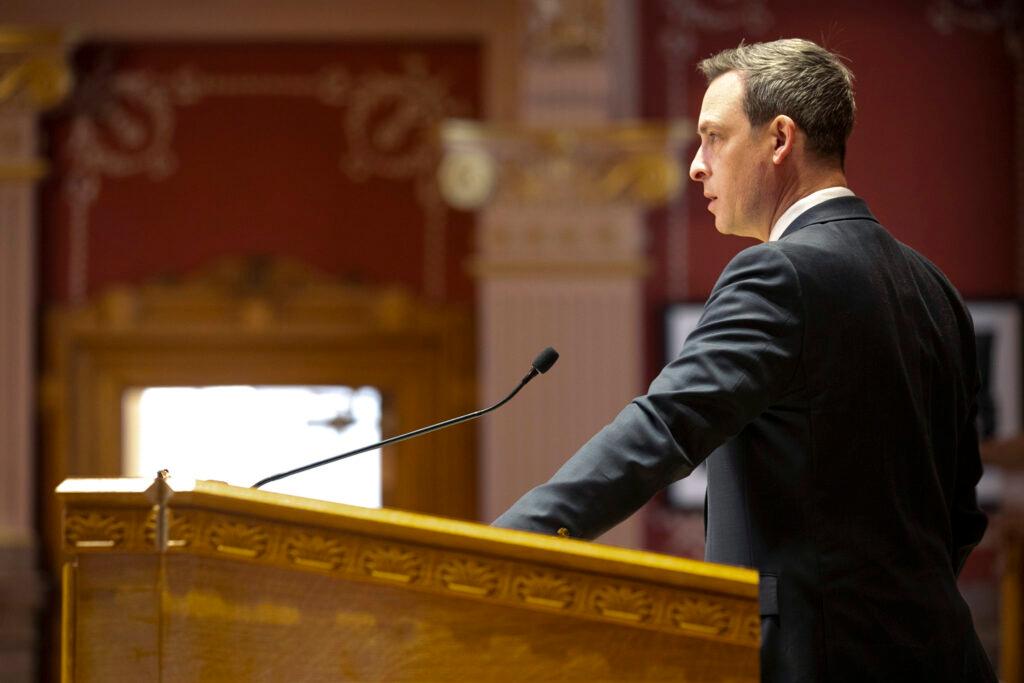
“To me, it’s a little odd that the utilities are dying on this hill, because I think the intent is clear,” said State Senate President Steve Fenberg, D-Boulder, one of the law’s sponsors. “I think it’s hard to justify to the public that this should be secret.”
In an email, Xcel representative Michelle Aguayo said the company provided a sufficient annual report to regulators, and that the “vast majority of expenses the law required be excluded from rates has historically been excluded from Xcel Energy — Colorado customer rates.” Xcel also provided CPR with its 2022 political contributions report.
Legislators saw the law needs stronger rules
The utilities commission first drafted temporary rules about the law in August 2023 and opened up its proposed rules for public comment in April 2024.
Under the proposed rules, utilities must report what they spend on political influence activities and include the purpose of a payment, who it went to and how much it cost by April 30 of each year. The idea is that the commission can then verify that none of that spending was passed onto Coloradans.
In a public hearing and a filing submitted to regulators in July 2024, utility representatives said the commission’s proposed rules“successfully and effectively” accomplished the law’s aims, and suggested making only minor tweaks.
The legislators who wrote the law disagree. They say the proposed rules are too weak to ensure Coloradans aren’t charged for political activities. In a statement to CPR News, Fenberg urged regulators to “adopt strong rules that will ensure utilities aren’t using ratepayer money for their own political ends.”
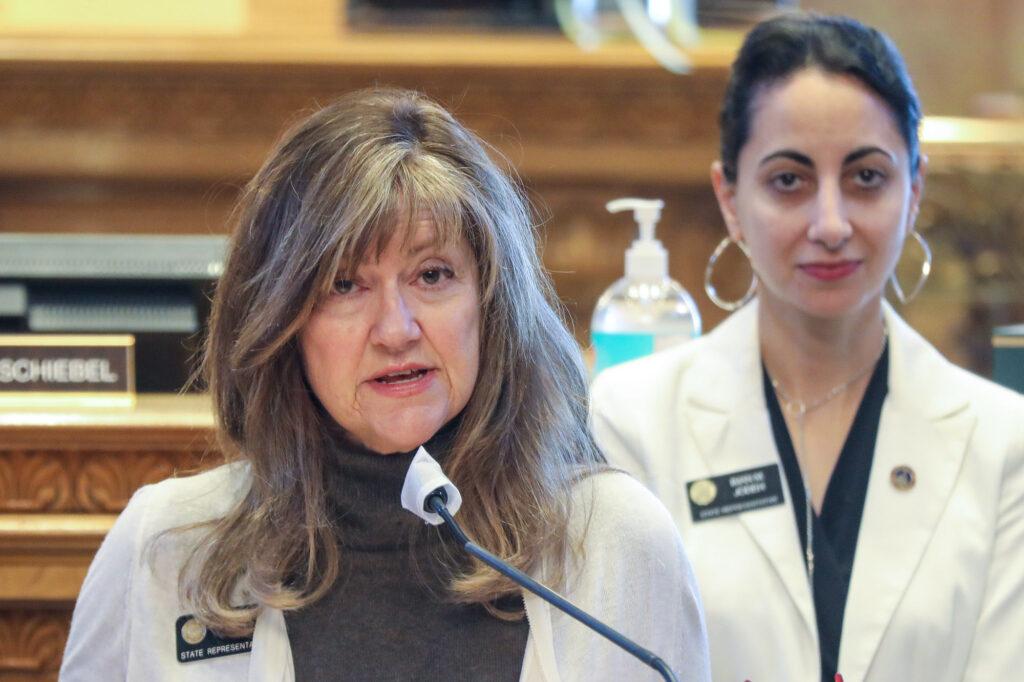
Lisa Cutter, D-Jefferson County, who also sponsored the bill, said regulators should adopt strong rules that enact the law’s intent to protect utility customers.
“We had to pass a law to ensure that ratepayer money won’t be spent on political influence and Colorado consumers deserve the transparency to know that this law is being followed,” she wrote in an email to CPR News.
Itemized in other states
Colorado’s utility consumer advocate and the Energy and Policy Institute are urging regulators to require utilities to submit itemized data about their political influence spending.
That would include how much time specific employees spent lobbying, invoices that show how much was paid for a prohibited expense, and even spending from parts of a utility’s business that could be involved in political influence.
“There’s an opaqueness or a black box into how they’re conducting these activities,” said Joseph Pereira, Deputy Director of Colorado’s Office of the Utility Consumer Advocate. “We really need to get deeper reporting,” he said.
In a joint filing, the utilities said that nothing in the law or proposed rules requires them to itemize their expenses in an annual report and said they don’t keep such granular records. Xcel Energy said the requirement would be “extremely burdensome.”
The “information would provide no benefits to customers while likely increasing their costs,” utilities wrote in a filing.
However, Colorado utilities are already required to itemize some of this information in other states.
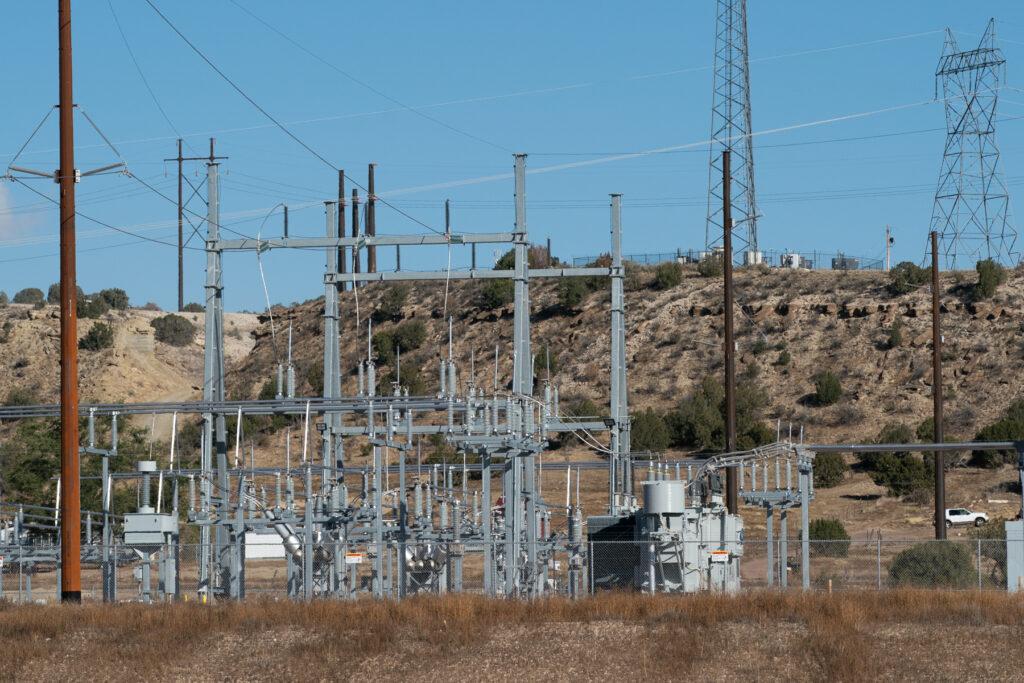
In Texas, regulators require energy companies to itemize expenses over $500 for gifts, public relations and legislative advocacy. One Xcel Energy subsidiary, Southwestern Public Service Company, submitted itemized expenses to Texas regulators in 2023.
Other Xcel Energy subsidiaries in Michigan and Minnesota are also required to provide itemized reports for some of the same expenses that utility watchdogs want detailed in Colorado.
“[Utilities] are not making those arguments in other jurisdictions,” Pomerantz said. “They’re fine filing stuff publicly.”
Xcel Energy did not respond to CPR News’ questions about why it objected to itemizing some political expenses publicly in Colorado when it’s already reporting similar information in other states.
The commission’s rulemaking process is being shepherded by a state administrative law judge, who will consider all the public comments and filings and make a recommendation to the commission on the scope of the new rules.
In the June hearing, the judge, Robert Garvey, pressed both utilities and advocates about the need for transparency while balancing a potentially expensive accounting process.
“Do I want the utility to pay $30,000 to show, ‘Oh yeah, they shouldn’t have gotten that $100 dinner there?’” Garvey asked.
Collected, confidential
This year, utilities submitted their first round of public annual reports under the Colorado regulator’s temporary rules. Atmos Energy, an electricity utility that serves customers in eight states, reported that it spent just over $55,000 in Colorado to pay one lobbyist in 2023. Atmos Energy did not report detailed information about the purpose of those payments.
In its report, Atmos Energy — the country’s largest natural gas-only utility with over three million customers nationwide — said publicly revealing the purpose and payee of its lobbying, even if required under the proposed rules, violated its First Amendment rights.
Atmos Energy did not respond to a request for comment.
In its public report, Xcel Energy said it spent nearly $2.5 million on lobbying and political contributions in Colorado in 2023 but did not itemize its expenses in the report. It provided some further detail in its annual lobbying filing. Xcel Energy was the top spender on political lobbying during that fiscal year, according to a Colorado Sun analysis.
Advocates say the utilities’ first swings at the report show that they must be collecting itemized data, but do not want to publicly report it.
“The challenge with aggregation is you can’t match dollars to activities,” said Pereira with the utility advocate. “If you have the top-line aggregated number, obviously you’ve compiled individualized numbers to get there.”
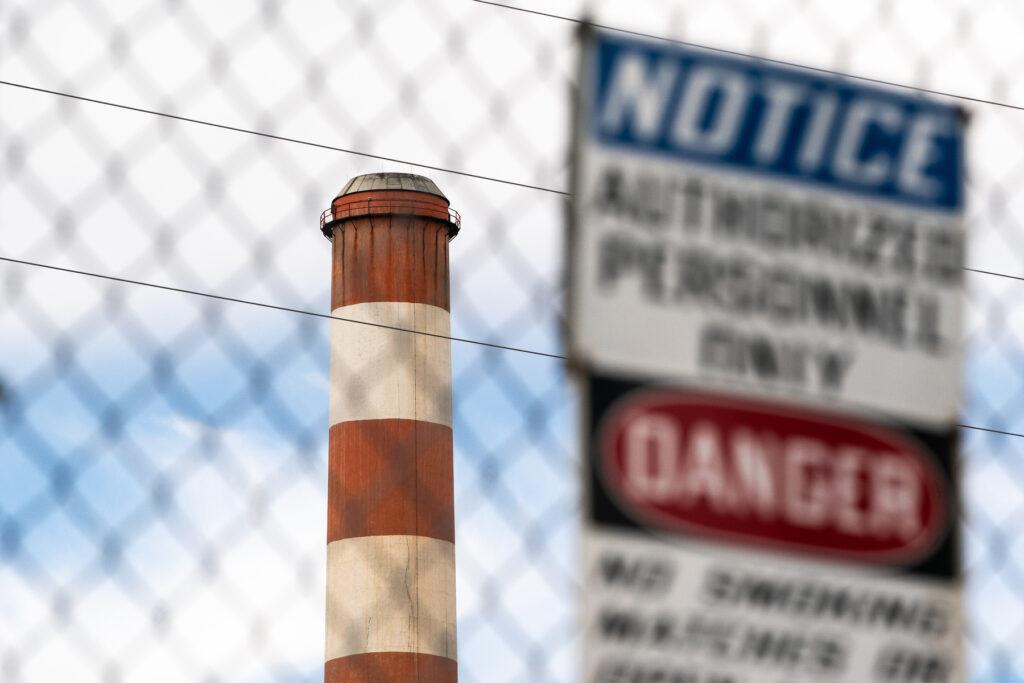
Xcel Energy was the only utility to submit a separate confidential annual report directly to regulators, where it laid out its political activities. In a filing, Xcel Energy said that its report was 36 pages long and included “line-by-line transaction data” that regulators could use to verify if it complied with the law.
But Xcel Energy wants to keep that information out of the public eye.
Xcel said the report might include trade secrets and said the law doesn’t require its contents to be made public. In a filing, Xcel Energy and the other utilities urged state regulators to keep the detailed reports confidential.
CPR News requested a copy of Xcel Energy’s confidential political activity report, which was denied by the Department of Regulatory Agencies. In a letter to CPR News, the agency said the report “contains confidential, proprietary, private, and non-public commercial and financial information, which the Company does not include in rates and is otherwise not subject to regulation.”
Advocates say that without an itemized public-facing report, consumers can’t verify for themselves whether a utility is actually complying with the law, and that the public could help regulators comb through thousands of transactions.
Lawmaker: New legislation might be needed
Judge Garvey will likely issue an update about the rules in October, with more hearings to follow. While the temporary rules will expire in a few weeks, regulators will extend them if the final rules aren’t yet adopted, according to the commission.
If the final utility rules don’t improve utility transparency as much as legislators intended when they wrote and passed the 2023 law, state Sen. Fenberg said lawmakers might write new legislation.
“It never even crossed my mind that it wouldn’t be a public-facing report,” he said. “If it needs to be clarified, I’m pretty sure the legislature would pass a law to say so.”









